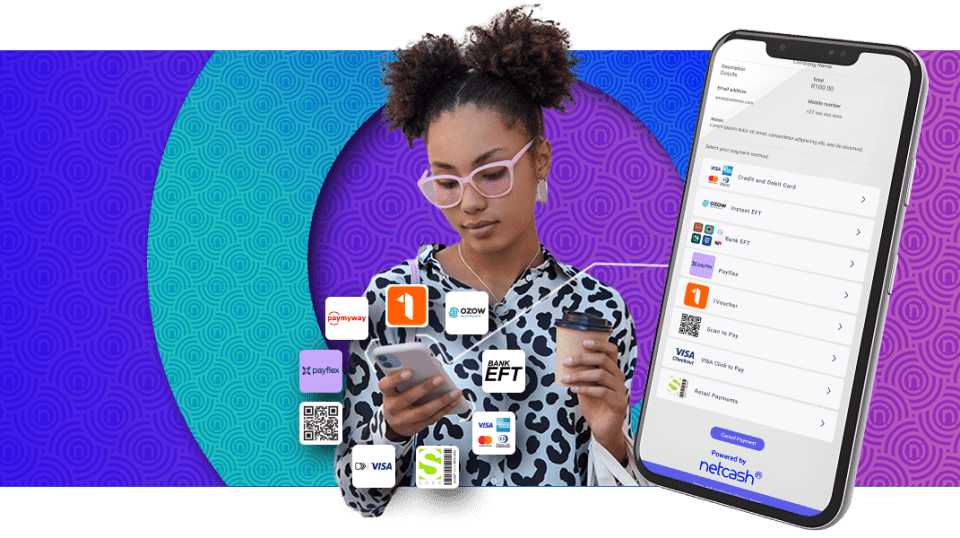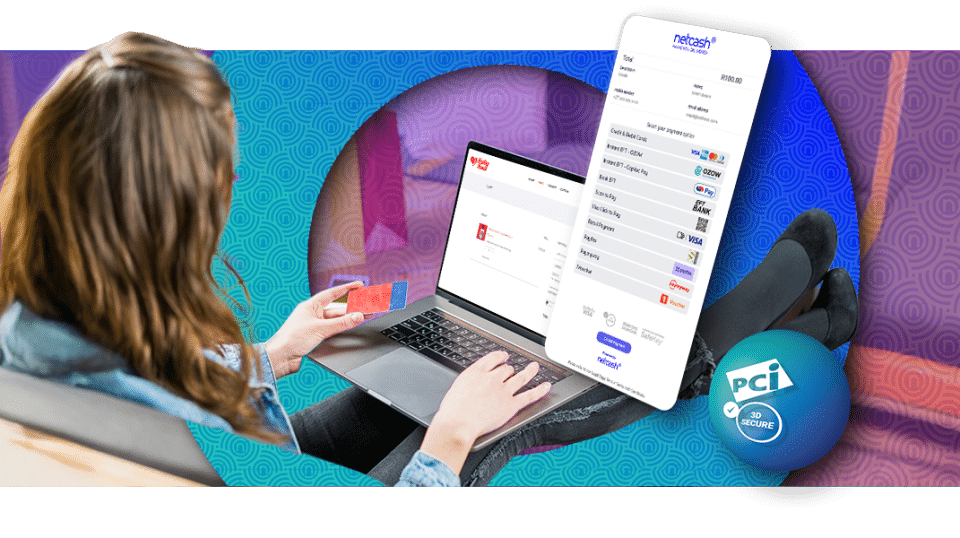
WooCommerce vs. WordPress – A definitive comparison
March 18, 2025
WooCommerce vs Ecwid – Which is better for eCommerce?
April 18, 2025The unbanked population, including millions in South Africa, faces major hurdles in joining the modern digital economy. Many can’t access traditional banking services. This is due to factors such as geographic isolation, high costs, or documentation issues. However, new solutions are starting to digitally close these gaps, and voucher payments are emerging as a powerful tool in this movement.
Voucher-based systems enable people without bank accounts to participate in the digital economy. This offers them a safe, accessible, and inclusive way to make purchases, pay bills, and even save money. From mobile recharge vouchers to prepaid digital codes, these payment methods are changing how those without bank accounts use financial services and technology.
The potential of this simple yet effective solution to address one of the world's most pressing financial challenges is ever-growing. Keep reading to explore how voucher payments are driving digital transformation, empowering communities, and paving the way for a more inclusive global economy.

Challenges faced by the unbanked population in South Africa
South Africa’s unbanked population faces a range of challenges that keep them from fully engaging in the country’s growing digital economy. Despite improvements in financial technology, 15% of South Africans remain without access to formal banking services. This means exacerbated economic inequality and limits opportunities for growth.
Overcoming these challenges requires innovative solutions tailored to South Africa’s unique socio-economic landscape.
Limited access to financial services
Many rural areas in South Africa lack the infrastructure to support even basic banking services, such as ATMs and bank branches. This creates a disadvantage for people in these regions, forcing them to travel long distances to access even the most basic financial services.
Others in urban centres struggle with high fees and strict requirements, such as proof of income or residence. These obstacles exclude millions from the formal financial system, perpetuating economic inequality.
Dependence on cash transactions
With 72% of point-of-sale transactions taking place with cash, it’s fair to say that cash is still king in South Africa. A large portion of the unbanked population relies entirely on cash transactions, which are not only safe but also limit economic participation.
While cash gives you immediate liquidity, it presents several risks, including theft, loss, and being unable to build a credit history. Furthermore, cash transactions limit how people participate in the growing digital economy, excluding them from e-commerce and online services.
Economic and educational inequality
Low-income households, particularly in underprivileged communities, are disproportionately without bank services. Many don’t understand how banking systems work or the benefits they provide. These households often lack the skills to navigate banking systems, while educational gaps further hinder their ability to use digital financial tools.
Gender disparities also play a big role, with women in rural areas facing additional socio-economic and cultural barriers. This issue is worsened by economic differences, as the cost of maintaining a bank account is often too much for those living on minimal incomes.
Trust deficit in formal financial systems
A history of exclusion and inequality has eroded trust in banks and financial institutions among some citizens. For many, there is the idea that banks prioritise profit over community needs, leading to doubt about the value of engaging with financial services.
High-profile negligence and corruption cases in public systems worsen this distrust, making it harder for financial institutions to gain the public’s trust.
Learn more about Netcash payment gateway features that promote security and trust.
Social and cultural barriers
For some, cultural and societal rules don’t encourage participation in formal banking. For example, women in some communities may have problems opening and managing their own accounts due to gender biases.
Technological obstacles
While mobile banking solutions are moving forward, the digital divide is still an issue. Limited access to smartphones, data, and reliable internet services prevents many people from using digital financial tools, leaving them reliant on less secure forms of payment.
Ready to embrace the future of payments?
Whether you’re looking to integrate digital wallets, vouchers, or mobile payment systems, we’ve got you covered.
Bridging the digital divide with voucher payments
Voucher payments are appearing as an innovative solution to bridge the divide, offering cash users a payment gateway to finance and the digital economy. They bring to the table an opportunity to empower the unbanked.
Vouchers also create economic inclusion and narrow the gap in access to essential financial tools. As more businesses and governments adopt voucher-based systems, they pave the way for a future where financial services are accessible to all.
What is a payment voucher?
Payment vouchers are prepaid, digital, or physical codes that represent a specific monetary value. They can be used to purchase goods, pay for services, or even transfer money without needing a bank account.
How does a voucher work?
The process of using vouchers as payment is straightforward and user-friendly, making it accessible to anyone without bank accounts or credit cards. A user can purchase a voucher with cash for a set amount from a participating vendor or store. The voucher usually uses a unique code that can be redeemed online or at physical stores.
For instance, the user might use the voucher or coupon to pay for electricity, mobile airtime, or even e-commerce purchases. In some cases, voucher systems merge with mobile wallets, further extending their usability and convenience.
Empowerment through voucher payments
Voucher payments address many of the challenges faced by cash users, offering a safe, flexible, and easy alternative to mainstream banking.
- Accessibility: Vouchers are available at everyday retail outlets, cutting out the need to use bank branches or ATMs. This makes financial tools available even in remote areas with limited services.
- Security: By reducing reliance on cash, vouchers shrink the risk of theft and loss, offering a safer way to store and spend money.
- Financial inclusion: Vouchers allow users to engage in digital transactions, including paying bills, purchasing goods online, and accessing essential services. This opens up opportunities for economic participation previously out of reach to them.
- Affordability: Unlike bank accounts that may have maintenance fees, vouchers are often cost-effective, requiring no ongoing financial commitment or minimum balance.
- Building digital literacy: By introducing people without bank accounts to digital systems, voucher payments are a stepping stone toward broader financial literacy and inclusion in the digital economy.

Real-life examples: How South African businesses use voucher payments
Businesses have used voucher payments to expand their customer reach and increase their revenue and versatility. They have helped their industry growth by taking the business to previously unreachable places.
1Voucher
1Voucher has revolutionised the South African market by providing a convenient way for unbanked customers to access digital services. Sold at major retailers and spaza shops, 1Voucher allows customers to purchase prepaid vouchers that can be redeemed for online services, mobile airtime, or utility payments.
Its broad accessibility has enabled businesses to reach customers who previously lacked access to digital transactions. Companies partnering with 1Voucher benefit from increased market penetration, particularly in underserved areas, while empowering customers with a secure and simple payment method.
Electricity utility providers
South African utility companies like Eskom have adopted voucher systems to streamline electricity payments. Prepaid electricity vouchers can be bought at local stores, online platforms, and mobile apps, making it simple for customers without bank accounts to purchase power.
This system has improved access to essential services, especially in rural areas. By offering a prepaid option, utility providers have not only improved their revenue collection but also improved customer satisfaction by providing solutions tailored to their needs.
Kazang
Kazang offers voucher-based payment services for small businesses, enabling informal traders to sell prepaid products like airtime, data, and utilities. By equipping small merchants with easy-to-use terminals, Kazang has grown its network and brought essential services closer to under-resourced communities.
This approach has significantly boosted the earnings of participating vendors while growing Kazang’s customer base. Additionally, it allows the unbanked population to access digital services without requiring bank accounts, creating a win-win scenario for businesses and customers alike.
Kazang is just one of many Netcash integration partners helping the unbanked.
Betway
Betway is a leading online sports betting platform in South Africa, and has successfully leveraged voucher payments to expand its reach and customer base. By offering prepaid vouchers available at sellers around the country, Betway allows customers to fund their accounts using cash.
This mode of payment enables more users to access Betway’s services without a bank account or credit card. The convenience and accessibility of these vouchers have attracted new customers, especially in less developed areas, boosting Betway’s sales and market presence.
Discovery
Discovery, a leading health and insurance provider in South Africa, uses voucher payments to improve access to healthcare for individuals without the usual banking facilities. Through prepaid healthcare vouchers, customers can pay for medical services, consultations, and medications at participating healthcare providers. These vouchers can easily be purchased at participating stores, allowing cash paying clients to manage their healthcare needs without credit cards or bank accounts.
By offering this flexible and comprehensive payment option, Discovery has improved accessibility to quality healthcare. The company is empowering more South Africans to prioritise their well-being while extending their reach to underserved communities.
Showmax
Showmax, a leading streaming service in South Africa, has leveraged voucher payments to reach unbanked and underbanked users. By offering prepaid vouchers available at major retail outlets and spaza shops, Showmax allows customers without bank accounts or credit cards to make use of their platform. These vouchers enable users to subscribe to Showmax’s services using cash, making it a simplified option for entertainment.
This method has significantly expanded Showmax’s customer base, particularly in disadvantaged communities. It is also fostering digital engagement and reaching out to a wider audience through voucher payment. Showmax has strengthened its market presence and increased accessibility to streaming services.

Frequently asked questions about voucher payments
Here are answers to some commonly asked questions about voucher payments and the industries they function in.
Final thoughts on voucher payments as a solution for the unbanked
Voucher payments are proving to be a life-changing solution for eliminating the challenges faced by unbanked people. By offering a safe, easily accessible, and cheaper alternative to traditional banking, vouchers empower individuals to take part in the digital economy. These simple yet smart payment systems bridge the gap between cash dependency and financial inclusion, allowing users to access services without a bank account.
For businesses, accepting voucher payments means reaching new customers, boosting brand loyalty, and driving growth in underserved markets. As digital transformation continues to change the shape of the global economy, voucher payments serve as an important tool for creating a more inclusive financial system.
By applying this potential, governments, organisations, and communities can collectively work toward closing the economic divide. This in turn builds a future where everyone has the opportunity to thrive.
Ready to expand your reach with voucher payments?
Discover how Netcash helps you serve unbanked communities with secure, flexible payment options.

Candice Sergeant is a digital dynamo at Netcash, where she’s on a mission to help South African businesses level up their online game. As an eCommerce Product Owner, she’s got her finger on the pulse of the latest trends and technologies, constantly seeking out ways to boost sales and streamline operations. With a knack for spotting opportunities and a passion for innovation, Candice is your go-to guide for taking your e-commerce business to the next level.



